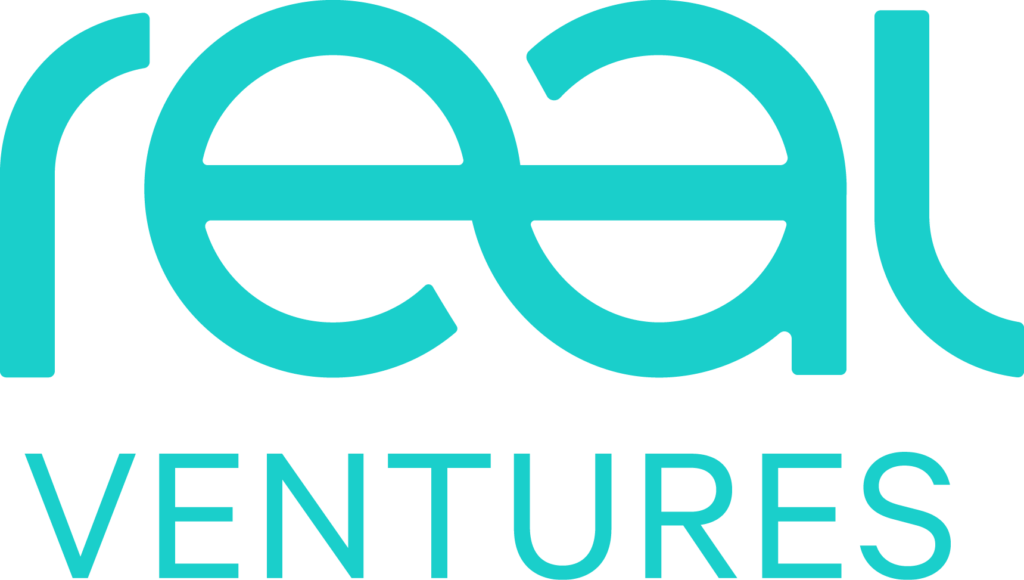Building a dynamic startup community takes years — twenty or more according to VC veteran, Brad Feld. In Canada, we’re around a decade into startup ecosystem development in our major cities…and have already been getting a lot of international attention.
The three key assets needed to grow a knowledge-based economy are (1) educated people, (2) access to smart capital (money and networks) and (3) ambition. In Canada, these foundational pieces have been falling into place, particularly in urban centres where universities act as magnets and anchors both in the concrete of their infrastructure and, more importantly, in the intellectual space that they have created and continue to nourish.
We now have plenty of motivated, highly-educated people and are steadily gaining more. Greater numbers of graduates from top computer science and engineering programs are choosing to stay in Canada because of the great fiscal environment for researchers and new businesses (SRED, IRAP), not to mention the amazing quality of life, and stable political systems that understand technological innovation as an economic engine. We have more smart capital and more companies in which to invest. And as our governments continue to invest in the tech sector’s rapid growth, we are also seeing more structures and organizations to help inspire founders and support them along the way.
These three critical assets follow a well-worn path, as evidenced by the success of startup ecosystems in the US, UK, Germany, Israel, France and, of course, Canada.
- Fundamental Research, from ideas to labs to incubators.
- Applied research from prototypes to projects to accelerators and university funds (with a pinch of IP).
- Commercialization from product-market-fit validation to building an efficient organization to operationalizing at scale, with the right unit economics and a rich human culture.
At Real, we’re privileged to have a team of ecosystem pioneers, folks who haven’t been afraid to get their hands dirty and work hard to plant the seeds that Canadian tech needs to flourish. We asked a number of them for their insights about their areas of expertise — from student-led companies to tech accelerators to the state of early-stage VC funding — and what it indicates about the health of the ecosystem. We still have a long way to go, but one thing is clear: Canadian tech is becoming a force to be reckoned with!
Student entrepreneurship starts to get the attention it needs
Raphael Christian-Roy and Eleonore Jarry-Ferron, Co-founders of Front Row Ventures
With Canada’s educational strengths, it should come as no surprise that the nation is leading the world in student startup founders. According to a BDC study, entrepreneurship rates in Canada have increased by 80 percent for people under 35 since 2014. This is thanks in large part to the growing support system for student entrepreneurs, with programs like Creative Destruction Lab, Centech, Velocity, DMZ and the X-1 Accelerator helping students with their business ideas, roadmaps and access to early funding. At Front Row Ventures alone, we were in contact with about 550 student-led companies in Quebec and Ontario in 2019, and we foresee that number growing in 2020. We also hope to see more programs and schools working together or even merging to create more cohesive ecosystems that can help to bridge the gap between university research and commercialization.
Greater Diversity
With a large portion of the steadily-growing international student population choosing to remain in Canada after graduation, there are now more international student founders as well as a lot more female founders than in the past. There has also been a notable rise in successful scientists and researchers turned entrepreneurs. In the FRV portfolio alone, we’ve backed Puzzle Medical Devices, Invivo AI, nplex, eNuvio, and Korbit AI — all started by student founders with high-tech or research backgrounds.

Earlier access
As VC rounds are getting bigger and more competitive, it’s critical that investors back breakthrough companies earlier than before. As a result, more “off-the-ground” rounds are happening just before institutional seeds. These small rounds can enable student entrepreneurs to leverage a lot of non-dilutive funding, giving them an extra boost of momentum before they’re ready to seek larger investments. We think this is just the beginning of this trend.
A shifting landscape of tech accelerators is catalyzing great companies
Sunil Sharma, Managing Director of Techstars Toronto
More private accelerators with global networks
As Canada rises as an entrepreneur nation, more US and international accelerators want to get in on the action. Since we launched our first Techstars cohort in Toronto in 2018 — and expanded to Montreal for Techstars AI — we’ve also seen gBETA, an accelerator program run by Gener8tor from the US, Entrepreneur First, a UK-based “talent investor”, and Acceleprise, a SaaS accelerator and fund founded in San Francisco all announce or launch programs here.
These programs are in addition to the local accelerators that have already been propelling very early-stage companies like FounderFuel, Highline Beta and Propel. Overall, there’s now more competition for the top, early-stage tech companies, which is good for us! It’s a testament to the brand Canada has around the world.

Global founders
We’re also getting more international interest from talented entrepreneurs applying to these programs. Because Canada is seen as more immigrant-friendly — there’s a more diverse population, people feel safer, more welcomed — they want to start businesses and build their lives here. The upcoming Techstars Toronto cohort looks like it will be an international class with a nice blend of Canadian and international companies, with promising candidates from countries across Europe, Africa and the Middle East. It is also interesting that even the Canadian companies, by and large, have at least one immigrant founder at the helm, and often the entire founding team are immigrants.
This growing globalization of accelerators is good for Canadian entrepreneurs because they can give added value to the founders — and tech ecosystems — through their strong networks. And highly selective accelerators are good not just for the founders but also for investors because you’re catching the entrepreneurs at the beginning of their growth cycle when you can help more and get a sense of their internal clocks.
Pre-seed funds are proliferating and we’re seeing more deep tech
Isaac Souweine, Partner at Real Ventures
More pre-seed
When we started fundraising for our Orbit strategy in late 2016, the very idea that seed-stage investing includes a separate pre-seed phase was a point of some discussion. Fast forward a few years, and it’s become commonplace for early-stage startups in North America to take their first institutional funding in the form of a pre-seed round — typically $1M or less, often syndicated with VCs and angels and usually before commercialization. Accelerator graduates and first-time founders feature prominently at this stage, as do seasoned founders raising at the idea stage based on their track record and profile.
In the US, several venture firms have built strong brands and multi-fund franchises around pre-seed (e.g., K9, Haystack, Nextview) and tons of up-and-comers are joining them. Canada is in on the action as well, with firms like Panache, Ramen, Good News, Two Small Fish and Box One. If the economic winds stay fair, I believe we can expect more of the same. What this means is more $20M — $40M funds doing institutional pre-seed, including more regional funds with local backing like what we have in Quebec with our Orbit strategy, Fonds Innovexport and Ecofuel. It also means more small, single GP micro funds and family offices like Jason Van Gaal’s 0MC and Alex Norman’s N49P (both Canadian-focused). More pre-seed money will, of course, mean more pre-seed rounds, which is good news for founders. As pre-seed deepens further, traditional seed funds will continue to migrate toward larger rounds while developing better sourcing networks within the pre-seed funds.
More deep tech
Deep tech is a catchall for startups that create value using technology that goes beyond traditional software, including robotics, silicon, nanotech, biotech, quantum, energy, and AR/VR. In the past few years there has been growing excitement about this corner of the startup world, also known as frontier tech. For many, it represents a resurgence of the ambitious, science-first era that gave Silicon Valley its name.
In addition to more deep-tech focused funds emerging in the US, Canada is getting in on the action. Even as a generalist tech VC, Real Ventures has invested in high-calibre, high-potential companies like Avidbots (robotics), Xanadu (quantum) and TensTorrent (hardware) in Toronto/Waterloo, and Spark (IoT), Sollum (hardware) and Omnirobotic (robotics) in Montreal. At Real, deep tech has actually accounted for about 25 percent of our investing from our most recent funds, with an even higher proportion in our pre-seed strategy.
As with trends in pre-seed, I believe the deep tech wave has strong momentum. Canadian success story Creative Destruction Lab has provided a highly-scalable model for engaging with university tech ecosystems and science-first companies. And with stronger communities emerging around deep-tech verticals (like NeurotechX for the neurotech community), and research institutes like MILA and Ivado complemented by deep-tech-focused programs like Centech and TandemLaunch, we can expect to see more cutting-edge research taken to commercialization.
Seed investment signifies the health of our ecosystem
Janet Bannister, Partner at Real Ventures
More Canadian seed-stage investment
A robust pipeline of high-potential companies is a prerequisite for a long term, vibrant tech ecosystem. Therefore, the continued growth of seed-stage funding for Canadian tech companies is one reason why we feel that Canada is well-positioned to generate more tech giants in the years to come. In fact, the dollars invested in Canadian seed-stage companies has doubled over the past three years. And in the first half of 2019, investments in seed rounds increased significantly versus the first half of 2018, boding well for continued momentum in 2020.
This growth in seed funding is primarily being driven by long-standing Canadian early-stage funds continuing to invest in Canada, as well as the growth of new early-stage Canadian funds such as Panache, Luge and Ripple. It is still relatively rare to have US or other international VCs lead a seed-stage round in a Canadian company — although they are increasingly leading Series A and later rounds.
In 2019, Real met with over 1700 companies raising seed rounds and continued to deploy significant capital into seed-stage Canadian companies. Real’s focus is to lead rounds in pre-Series A, Canadian companies and then continue to invest in and support companies as they scale. We embrace this strategy because we believe in the potential of Canadian entrepreneurs, and we want to help these early-stage founders with capital, expertise, advice and networks. We know that a strong, early foundation is key for entrepreneurs to build large, successful, industry-defining companies.
Canada benefiting from strong AI talent
Canada has historically been a world leader in AI. Canada’s universities, home to Turing Award-winning Canadian AI pioneers Yoshua Bengio and Geoffrey Hinton, among many other exceptional leaders in the field, are producing more than our fair share of qualified AI leaders. As a result, a significant portion of Canada’s early-stage companies is using AI as the basis upon which to build a competitive advantage. Founders need to think about how they can leverage AI to better deliver on their value proposition (what we call “applied AI”), or to create entirely new value propositions that otherwise would not have been possible (what we call “AI-first”). These AI-driven startups are working in every industry and at Real, we have invested in AI companies in sectors from HR to healthcare to construction to finance.
Canada needs to continue to invest more in early-stage companies
Despite this growth in funding for Canadian early-stage companies, total Canadian seed-stage investments in 2018 were only 3 percent that of the US, or approximately one-third on a per capita basis. Therefore, we as a country need to continue to grow our investment in high-potential early-stage Canadian companies if we are to have a robust set of high-growth technology companies in the years to come.
Series A and beyond continue to grow thanks in big part to international interest
Sam Haffar and Sylvain Carle, Partners at Real Ventures
Canada should be considered a core part of US venture strategy
There’s a lot to be excited about for Series A and later funding for tech companies in Canada. As the ecosystem matures, with more funding from the earliest stages plus more expertise and stronger networks, we’re seeing a significant increase in investments from top US VCs that hadn’t spent much time looking outside of Silicon Valley in the past. Some recent examples from our portfolio include Toronto-based B2C fine jewellery company, Mejuri’s US $23M Series B from NEA in early 2019, on-demand construction material supplier, Montreal-based RenoRun, that raised a $22.5M Series A from Obvious Ventures and others in late 2019, and just this week, Montreal-based workflow automation pioneer, Unito, announced their US $10.5M Series A round led by Bessemer Venture Partners.

We can also expect to see network effects created by this increase in US investment, as partners at leading firms build deeper relationships with the Canadian founders they back and begin to lean more heavily on recommendations from them and their Canadian co-investors.
For those who fear an economic downturn in the US and its repercussions in Canada, for the tech sector, at least, we feel confident that the value for money investing in Canadian startups will attract even more US VC money to the north side of the border. With upcoming elections in the US, Prime Minister Justin Trudeau in his second term and a strong US dollar, betting on Canadian companies with great tech and global ambitions will very likely continue to be an attractive prospect to more and more international VCs.
Canadian investors up the ante
While US VC money has been increasing, Canadian Series A (and later) investors have not exactly been sitting still. 2019 marked a record high across the venture capital board as invested capital, average deal size, fund sizes, valuations and time to go public all increased. There were also more mega-deals than ever before — another sign of the consistent growth in capital.
Canada needs to be more ambitious, eh?
Despite fears around an economic downturn, we believe that Canadian tech is as well-positioned as it’s ever been. 2019 was a year of highs for venture capital in the Canadian tech ecosystem, as invested capital, average deal size, fund sizes, valuations and time to go public all continued to increase. And as more Canadian-headquartered companies raise their Series A rounds and beyond from prominent US and international venture capital firms, we see more of the top global firms starting to look to Canada for their next great bets. With network effects being created by stronger community connections, more and bigger Canadian early-stage funds, and the added bonus of US dollars going further in Canada, we predict that Canadian tech’s time in the spotlight is just beginning.
**********
This article was compiled and edited by Lauren Jane Heller. Thanks to everyone who played a part in bringing it together! 🙏
**********
For more insights, fundraising advice, founder stories, ecosystem deep dives and industry trends, sign up for our newsletter and follow us on Twitter, LinkedIn and Facebook.




